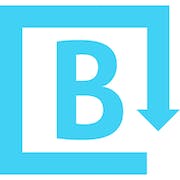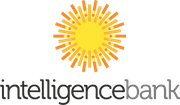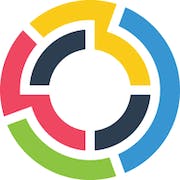Marketing Resource Management (MRM) is a key aspect of any successful marketing strategy. Ensuring the right message gets to the right customers is essential for any business, but managing this process can be a difficult and complex task. That's where MRM software comes in. By providing organizations with a centralized platform to manage their marketing resources, MRM software reduces the time and effort required in the planning, execution, and analysis of marketing campaigns. In this buyer's guide, we will explore the key features and benefits of MRM software, and provide you with the information you need to make an informed decision when selecting a solution for your organization.
What is Marketing Resource Management (MRM) Software
Marketing Resource Management (MRM) software is a solution that helps businesses manage and optimize their marketing workflows and resources. It provides tools for planning, executing, and measuring marketing campaigns, along with features such as asset management, budgeting, and reporting. MRM software empowers marketers to streamline operations, minimize duplicate processes, and maximize ROI. There are several common use cases for MRM software. Some of them include: - Campaign Management: MRM software enables marketers to plan, design, and execute campaigns across multiple channels, such as social media, email, and print. - Brand Management: MRM software facilitates consistent branding across all marketing materials by providing a central location for brand assets, such as logos, images, and templates. - Digital Asset Management: MRM software offers a centralized repository for digital assets, such as images, videos, and documents, making it easy for marketers to search, organize, and share them. - Workflow Management: MRM software helps streamline marketing workflows by automating tasks and approvals, reducing manual effort and speeding up time-to-market. - Analytics and Reporting: MRM software provides insights into marketing performance by generating reports on metrics such as campaign ROI, lead generation, and customer engagement. MRM software is used by a wide range of companies, from small startups to large enterprises. It is particularly useful for businesses that operate across multiple territories or channels, as it helps ensure consistency and transparency across their marketing operations. MRM software is commonly used in industries such as retail, healthcare, financial services, and technology, among others. By implementing MRM software, companies can gain a competitive advantage in the marketplace, allowing them to achieve greater efficiency, improved quality, and higher ROI from their marketing initiatives.
Benefits of Marketing Resource Management (MRM) Software
Marketing Resource Management (MRM) software is a critical tool for modern businesses. By implementing MRM software, companies can achieve greater control over their marketing resources, improve decision-making, and ultimately enhance their overall marketing efforts. Here are the key benefits of MRM software in detail: 1. Centralized Control: MRM software provides businesses with centralized control over their marketing resources. With a single platform to manage budgets, resources, and campaigns, businesses can streamline their marketing operations and get a clear picture of their marketing activities. 2. Resource Optimization: MRM software helps businesses optimize their marketing resources by enabling them to track and manage their budgets, assets, and team's workload. This enables businesses to more effectively allocate their marketing resources to achieve their objectives. 3. Improved Collaboration: MRM software enables marketing teams to collaborate more effectively by providing better visibility into campaign performance, resource allocation, and project timelines. This fosters a more collaborative work environment and helps teams deliver better results. 4. Increased Efficiency: By automating many marketing processes, MRM software enables businesses to run their marketing operations more efficiently. This includes everything from tracking budgets and managing campaigns to tracking leads and analyzing results. 5. Better Decision Making: MRM software provides businesses with valuable data and insights that can help improve decision-making. By tracking campaign performance and analyzing results, businesses can make better decisions about their marketing strategies and budget allocation. In today's ever-changing business landscape, marketing has become more important than ever. By implementing MRM software, businesses can achieve greater control over their marketing resources, optimize their marketing efforts, and ultimately drive better results.
Features of Marketing Resource Management (MRM) Software
Marketing Resource Management (MRM) software is designed to help organizations manage and optimize their marketing operations workflow. Here are some of the most common features found in MRM software: 1. Digital Asset Management: This feature allows organizations to manage their digital assets such as images, videos, and other marketing collateral. It allows for easy storage, searching, and sharing of digital assets across different teams and departments. 2. Project and Workflow Management: With MRM software, marketers can easily plan and execute their marketing campaigns. This feature offers project and workflow management tools that allow teams to collaborate effectively, review work, and approve tasks before execution. 3. Budgeting and Financial Management: MRM software provides marketers with the tools to manage their marketing budgets and track expenses. This feature allows for greater visibility into marketing spend and ensures that campaigns stay within budget. 4. Resource Allocation: This feature helps marketers in resource allocation by managing and scheduling the utilization of the resources such as people, finance, and material - this ensures that resources are effectively used. 5. Analytics and Reporting: Analytics and reporting tools in MRM software help marketers measure and track the effectiveness of their campaigns. This allows them to refine their marketing strategies continuously and improve the return on their marketing investment. 6. Compliance Management: MRM software assists marketers in ensuring that their marketing materials comply with company, industry, and legal standards. This reduces the risk of regulatory breaches and avoids potential penalties. 7. Brand Management: This feature helps organizations maintain consistent branding across all marketing campaigns. MRM software provides tools for enforcing brand guidelines and ensuring that all marketing materials meet brand standards. 8. Content Management: MRM software provides tools for managing and distributing marketing content across different channels. This feature allows marketers to create and share content efficiently, reducing the turnaround time and increasing the effectiveness of campaigns. 9. Collaboration Tools: This feature enables collaboration among internal teams and external partners. With MRM software, marketers can work with creative agencies, vendors, and other partners in one platform- ensuring real-time collaboration and seamless information flow. 10. Workflow Automation: MRM software automates repetitive marketing operations, reducing the time spent on manual tasks, and increasing efficiency. Workflow automation tools enable marketers to streamline their processes and focus on higher-level strategic initiatives. In conclusion, MRM software is a powerful solution for managing complex marketing workflows. Its wide range of features enables organizations to streamline their marketing operations and optimize their campaigns for greater ROI.
Considerations of Marketing Resource Management (MRM) Software
Marketing Resource Management (MRM) software can significantly enhance the performance of businesses by streamlining marketing processes, improving collaboration, and boosting the overall effectiveness of marketing campaigns. However, with several options available in the market, businesses need to consider certain factors before purchasing an MRM tool. One vital factor to consider is the specific needs of the business. Different MRM tools offer distinct features and functionalities, and it is essential to identify which features are necessary for the business to meet its marketing goals. For instance, a business that mainly focuses on content marketing may require an MRM tool that possesses advanced content creation and management capabilities. Another critical factor to consider is the scalability of the MRM tool. A business should always plan to grow and expand, and it is necessary that the MRM tool can scale up to meet the business's expanding needs. The software should also be easily customizable to match the brand's specific requirements. Integration capabilities should also be a significant consideration. The tool should integrate seamlessly with other software and tools being used in the business, such as CRM systems, email automation tools, and other marketing solutions, to avoid any compatibility issues. Usability should also be taken into account when choosing an MRM tool. The software should be user-friendly, with an intuitive user interface that is easy to navigate. Employees should be able to use the MRM tool with minimal training, as well as quickly learning how to navigate around the software. The MRM tool's security features should never be ignored. The software will be housing a wealth of sensitive data, including customer data, marketing strategies, and financial information. The tool should thus comply with the latest security standards and use state-of-the-art cybersecurity measures to keep the data secure. Finally, cost is a crucial factor to consider when purchasing an MRM tool. The software should provide a high return on investment, and the total cost of ownership should be reasonable for the business. However, it's not just the upfront price. A consideration of ongoing maintenance and support costs and any additional training or integration expenses should be factored into the total costs. In conclusion, investigating the above factors in depth and with a critical eye will help businesses choose the most suitable MRM tool for their specific needs. Adopting a client-centred approach can ensure a smooth exploratory process to find the right solution leading to successful adoption by the business.
Software Trends for Marketing Resource Management (MRM) Software
As we approach 2023 and beyond, the world of Marketing Resource Management (MRM) software is undergoing a significant transformation. Perhaps the most exciting trend is the growing incorporation of AI tools within MRM platforms. Automation is set to play a larger and more interactive role in the marketing space, with machines being taught to detect logos, faces, colors, demographics, emotions, context, and more, making it easy to tag assets. Automated inbox solutions will help marketers to automate repetitive tasks, allowing them to focus on more creative and strategic endeavors. More companies are expected to follow in the footsteps of IntelligenceBank Marketing Resource Management and integrate machine learning into their solutions. As always, MRM software will continue to play a critical role in managing marketing workflows, planning initiatives, and ensuring brand consistency across different communication channels.






